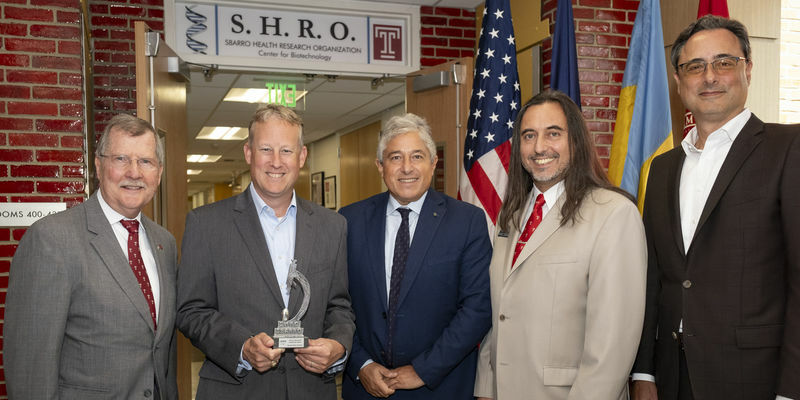Surgeon general warns: Alcohol is an ignored cancer risk
According to a new advisory from U.S. Surgeon General Vivek Murthy, less than half of Americans recognize alcohol as a cancer risk. Biology Professor Antonio Giordano discusses the link between alcohol and cancer.

Many Americans are taught from a young age that alcohol is a drug with many side effects, but according to a new advisory from U.S. Surgeon General Vivek Murthy, less than half of people recognize that alcohol is a risk factor for cancer. Murthy’s Jan. 3 advisory on the link between alcohol and cancer risk explains that alcohol consumption is the third leading preventable cause of cancer in the United States behind tobacco and obesity. It also states that alcohol increases risk for at least seven different types of cancer.
The advisory seeks to better inform Americans on the relationship between alcohol and cancer. Murthy even recommends updating the existing surgeon general’s health warning label on alcohol-containing beverages to help Americans make more informed decisions about their alcohol consumption.
So how exactly does alcohol increase cancer risk? Temple Now asked Antonio Giordano, president and founder of the Sbarro Health Research Organization and professor of biology in the College of Science and Technology.
At Sbarro, Giordano and his team conduct research to diagnose, treat and cure cancer, cardiovascular disease, diabetes and other chronic illnesses. Giordano’s cancer expertise spans more than three decades of important research and discoveries. Most recently, he led research that found that oleanolic acid, a compound found in grapes, can increase the effectiveness of chemotherapy.
This is what he has to say about alcohol’s link to cancer.
Temple Now: Is alcohol considered a carcinogen?
Antonio Giordano: Yes. Since 2000, the National Toxicology Program, which is under the U.S. Environmental Protection Agency and charged by Congress to produce up-to-date reports on human carcinogens, has listed alcohol as a “Known to Be Human Carcinogen,” their highest and most definitive rating for a chemical. This classification is based on extensive clinical and epidemiologic evidence. Most chemicals are only considered “Reasonably Anticipated to Be Human Carcinogens,” because they lack overwhelming epidemiologic evidence in humans. However, this is not the case for alcohol.
Additionally, the International Agency for Research on Cancer classifies alcohol as a Group 1 carcinogen, its highest risk group.
TN: Why does drinking alcohol increase cancer risk?
AG: Alcohol itself is not the chemical that directly causes cancer. Rather, it is the toxic metabolite of alcohol called acetaldehyde, a type of aldehyde, which is a very reactive chemical and can bind DNA causing mutations. These aldehydes increase a very reactive form of oxygen called reactive oxygen species, which cause mutations and therefore increase cancer risk.
Another confounding factor is liver damage derived by excess alcohol as is the case in alcoholism. Alcohol excess produces liver disease characterized by inflammation, which can increase the risk of liver cancer.
TN: What types of cancer are caused by drinking alcohol?
AG: Alcohol causes at least seven types of cancer, including bowel, breast, mouth, pharynx (throat), larynx (throat), esophagus and liver cancer.
TN: Does drinking more put you at a higher risk of developing cancer?
AG: The evidence indicates that the more alcohol a person drinks—particularly the more alcohol a person drinks regularly over time—the higher the risk of developing an alcohol-associated cancer. Even those who have no more than one drink per day and binge drinkers (those who consume four or more drinks for women and five or more drinks for men in one sitting) have an increased risk for some cancers.


